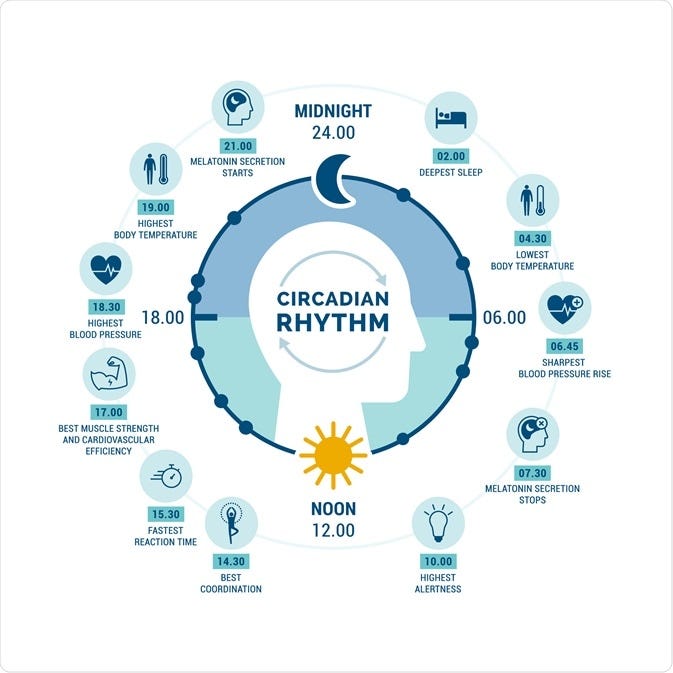Biological Rhythms in Humans
Written by Ayebamiebi Yousuo
Are you aware that Circadian Rhythm is not the only type of biological rhythm there is?
Though Circadian Rhythm is the most commonly mentioned and studied biological rhythm there are other rhythms that regulate various biological states of the human body.
What exactly are Biological Rhythms?
Simply put, Biological Rhythms are repetitive biological processes. These repetitive biological processes bring about differences in the timing of biological activities across various organisms, and that's why we see disparity in the sleep-wake cycle of organisms bringing about Diurnal and Nocturnal animals.
Types of Biological Rhythms
Below are the 4 Biological Rhythms in humans that you would want to know about.
1. Circadian Rhythm: this is the commonly known 24-hour cycle that includes physiological and behavioral rhythms like sleeping. This group of rhythms occurs once in 24 hours.
2. Ultradian Rhythm: with "Ultra-" telling us that it occurs at a higher frequency, the Ultradian Rhythm is rhythms that occur at a higher frequency (say 2 or more times) in 24 hours.
3. Infradian Rhythm: with "Infra-" telling us that it occurs at a lower frequency, the Infradian Rhythm occurs once in days, weeks, or months, an example is the Menstrual Cycle.
4. Diurnal Rhythm: this is a type of Ultradian Rhythm synced with day and night. That is the event is seen twice in 24 hours.
These biological rhythms are so important that disruption of any rhythm may bring about a disorder, a biological rhythm disorder. I can't imagine human life without biological rhythms, I guess the human race will be out of tune and lose the sense of time as seen by scientists who have tried to disrupt biological rhythms as a means of studying them in the field of Chronobiology(The Biology of Time)
References
Gabbey, A. E. (2019, February 1). Biological rhythms: Types, disorders, and treatments. Healthline. https://www.healthline.com/health/biological-rhythms#risk-factorsation.
Written by Ayebamiebi Yousuo from MEDILOQUY


